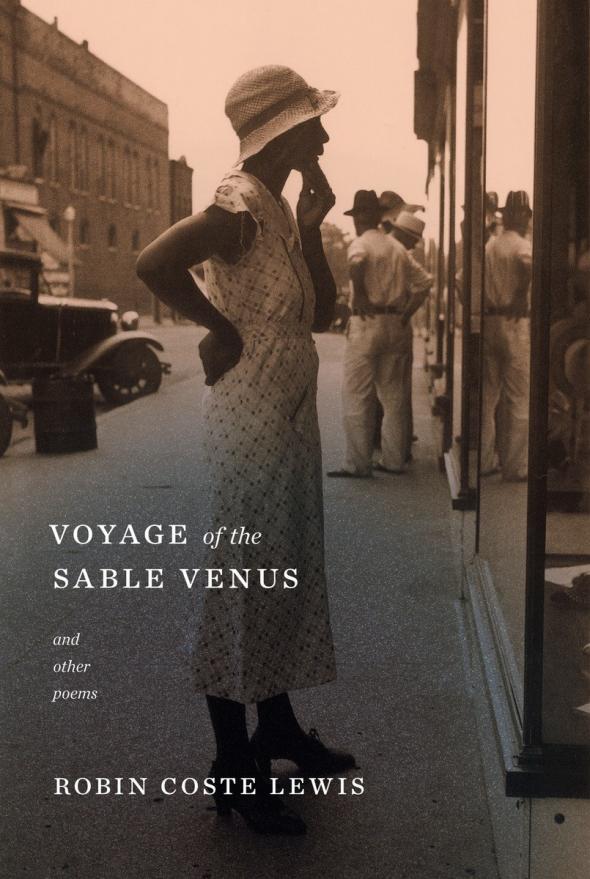On Wednesday night, the National Book Award for poetry went to Los Angeles poet Robin Coste Lewis for her Voyage of the Sable Venus. The award would be out of the ordinary if only because this is Lewis’s first book; the last time the poetry award went to a debut was Marilyn Hacker’s Presentation Piece, in 1974. But it’s all the more significant because it points to a sea change in American poetry, and the formation of new values both on and off the page.
Voyage of the Sable Venus is a massive work, and from its first page it declares itself as a powerful and era-defining poetic achievement. The collection is bookended by searing lyric poems that explore what it means to be a black woman today, in America and in the larger world. “On the Road to Sri Bhuvaneshwari” toggles between the experience of motherhood and the uncanny memory of watching a water buffalo birth a stillborn calf at night in India, years earlier. “She must turn around and see / what has happened to her, or she will go mad,” Lewis writes. This imperative applies to the poet as well as the animal, and it runs through the entire collection. In poem after poem, Lewis’s vision is panoramic and historical, and nowhere is this more evident than in the title piece, which spans 79 pages at the heart of the book. She describes it as “a narrative poem comprised solely and entirely of the titles, catalog entries, or exhibit descriptions of Western art objects in which a black female figure is present, dating from 38,000 BCE to the present.” The piece is voluminous, often violent, and a sight to behold.
Taken in a broader context, Lewis’s work represents an important shift in how the mainstream literary world is considering the work of black poets. Her poems speak out of lived experience and a palpable, emotional I, but they are also ingeniously experimental, crafted using elaborate constraints and brilliant formal turns. It’s the kind of work that erases the line between confessional, identity-based poetry and conceptual poetry—a line that has been problematically racialized for far too long. With poets like Kenneth Goldsmith and Vanessa Place provoking recent controversies—and being appropriately criticized for them—the literary community at large is looking toward a more diverse set of poets who are intellectually rigorous, emotionally direct, and conscious of their ethics, all at the same time.
Fortunately, there are many poets working at that intersection right now. This year’s five finalists for the National Book Award included four writers of color, three of whom are black. (The 2014 finalists included two dazzling and innovative black poets, Fred Moten and Claudia Rankine. Many in the poetry world thought that Rankine’s Citizen, an explosive lyric study of verbal racism, had been snubbed when the award went to Louise Glück.) And each of these finalists writes in fascinating, innovative modes, at once accessible and challenging in both their aesthetics and their politics. The list of writers of color at the forefront of contemporary poetry is ever-growing—beyond U.S. Poet Laureate Juan Felipe Herrera, also of note are Eduardo C. Corral, Ross Gay, Terrance Hayes, Cathy Park Hong, Saeed Jones, Rickey Laurentiis, Nate Marshall, Camille Rankine, Solmaz Sharif, Danez Smith, and Jenny Zhang—and increasingly their voices are recognized as deeply needed. With the increased exposure that the National Book Award will bring, it’s hopeful that Voyage of the Sable Venus will make still more readers aware of the new life that many writers of color are breathing into American poetry.
